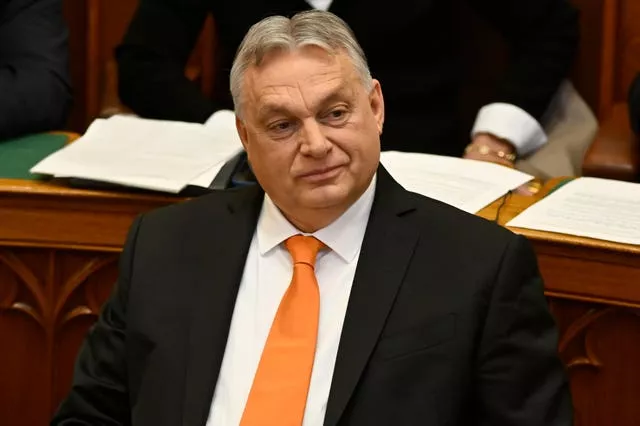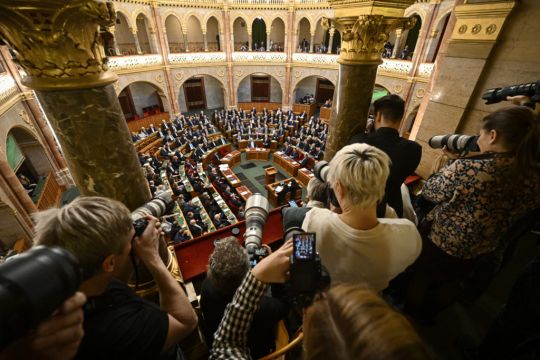Hungary’s parliament voted on Monday to ratify Sweden’s bid to join Nato, bringing an end to more than 18 months of delays that have frustrated the alliance as it seeks to expand in response to Russia’s war in Ukraine.
The vote, which passed with 188 votes for and six against, came as a culmination of months of wrangling by Hungary’s allies to convince its nationalist government to lift its block on Sweden’s membership.
The government of Prime Minister Viktor Orban submitted the protocols for approving Sweden’s entry into Nato in July 2022, but the matter had stalled in parliament over opposition by governing party lawmakers.
Unanimous support among all NATO members is required to admit new countries, and Hungary is the last of the alliance’s 31 members to give its backing since Turkey ratified the request last month.

Mr Orban, a right-wing populist who has forged close ties with Russia, has said that criticism of Hungary’s democracy by Swedish politicians had soured relations between the two countries and led to reluctance among lawmakers in his Fidesz party.
But the vote on Monday removed the final membership hurdle for Sweden which, along with neighbouring Finland, first applied to join the alliance in May 2022.
Addressing lawmakers before the vote, Mr Orban said: “Sweden and Hungary’s military co-operation and Sweden’s Nato accession strengthen Hungary’s security.”
Mr Orban criticised Hungary’s European Union and Nato allies for placing increased pressure on his government in recent months to move forward on bringing Sweden into the alliance.
“Several people tried to intervene from the outside in the settling of our disputes (with Sweden), but this did not help but rather hampered the issue,” Mr Orban said.
“Hungary is a sovereign country, it does not tolerate being dictated by others, whether it be the content of its decisions or their timing.”
Last weekend, a bipartisan group of US senators visited Hungary and announced it would submit a joint resolution to Congress condemning Hungary’s alleged democratic backsliding and urging Mr Orban’s government to immediately lift its block on Sweden’s trans-Atlantic integration.
On Monday, ambassadors from several Nato countries were in the parliamentary chamber during the vote.
The US ambassador to Hungary, David Pressman, told reporters Sweden’s approval was “a decision of strategic significance to the United States of America, to Hungary and to the trans-Atlantic alliance as a whole”.
“This has been a decision that has taken some time, and we look forward to the process concluding rapidly,” Pressman said.
A presidential signature, which is needed to formally endorse the approval of Sweden’s Nato bid, was expected within the next few days.
But on Friday, Ulf Kristersson, Sweden’s prime minister, met with Mr Orban in Hungary’s capital where they appeared to reach a decisive reconciliation after months of diplomatic tensions.
Following their meeting, the leaders announced the conclusion of a defence industry agreement that will include Hungary’s purchase of four Swedish-made JAS 39 Gripen jets and the extension of a service contract for its existing Gripen fleet.







